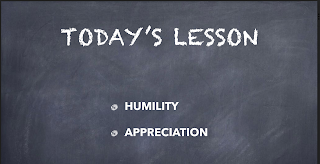Cooperation
Definition
The verb cooperate is originally from the combination of The Latin prefix co-, meaning "together," and operari, meaning "to work." The term "co-op" is a shortening of cooperative and is used when people work together (or cooperate) to run a preschool, health food store, etc. It develops the quality of Teamwork. To rely upon others for the completion of the Task. It builds team spirit. Creates bonhomie.
Cooperation is the spirit that makes people or organisations work together to achieve the same result or a common goal. The goal can be economic, social, cultural, personal, financial, or general good to Society or humankind. The list is exhaustive. Cooperation brings diverse people of different talents and facets to reach a common target through team building, consensus decision making, shared Responsibility and collaborative work.
Responsibility is an essential factor or ingredient for cooperation. Without individual Responsibility, cooperation cannot be achieved.
Types: Cooperation can be Voluntary, Unintentional, or as part of duty/commitment like Official work. It can also be coerced. Reasons and situations define the nature of cooperation.
Advantages: It reduces unproductive competition. Enhances knowledge sharing, Fosters good communication, and Makes achievement of common goals feasible and achievable. Build trust and team spirit.
MANY A LITTLE MAKES A MICKLE. OR ONE FLOWER DOES NOT MAKE A GARDEN.
Disadvantage: Individual sometimes lacks motivation. Subdues individual brilliance. Poor management can impact results. Internal conflict is a serious impediment.
AND sometimes what can be achieved by sheer individual talent cannot be achieved by making many cooperate together.
Responsibility
Definition – The state or fact of being responsible, answerable, or accountable for something within one's power, control, or management. Or simply put, it is an obligation or duty.
For us, it's to Respond Sensibly.
Be yourself, but always your better self.
Quality of being dependable.
It can also have negative connotations. Like being liable, culpable, etc. What is the difference between Accountability & Responsibility?
Although both terms are often used as synonyms, several characteristics separate them. Responsibility refers to the obligation to perform or comply with the rule; Accountability implies answerability for the outcome of the Task performed. In Corporate World, mostly Responsibility ends/merges with Accountability. However, we feel Responsibility is more internal … self in nature. Accountability is more external … for someone else to scrutinise.
Activity - Give the above explanation and ask students to share examples from their experiences.
Importance - Accepting Responsibility is crucial for success because it helps you work/learn through your strength, weakness and mistakes. It builds strength of character as a person becomes better at admitting they are not perfect.
A safe environment that supports Responsibility is positive and fulfilling. By accepting Responsibility, we become more action-oriented and gain confidence. The responsibilities we accept in our lives contribute to the type of person we become.
Types - Responsibility can be broadly divided into self and Society. The division can be classified further into several subcategories, like individual Responsibility, parental Responsibility, Social Cooperate Responsibility, Environmental Responsibility etc.
Responsibility isn't just doing chores; it's following through with one's commitments, answering for their own actions, being reliable and trustworthy, using good judgment, taking care of their affairs and not procrastinating.
HOW TO BE A RESPONSIBLE PERSON ,
(AND FEEL GREAT!)
- When you agree to do something, do it. If you let people down, they'll stop believing you. When you follow through on your commitments, people take you seriously.
- Answer for your own actions. Don't make excuses or blame others for what you do. When you take Responsibility for your actions, you say, "I am the one who's in charge of my life."
- Take care of your own matters. Don't rely on adults to remind you when you're supposed to be somewhere or what you're supposed to bring. You take Responsibility.
- Be trustworthy. If somebody trusts you to borrow or take care of something, take care of it. If somebody tells you something in confidence, keep it to yourself. People need to know they can count on you.
- Always use your head. Think things through and use good judgment. When you use your head, you make better choices. That shows your parents they can trust you.
- Don't put things off. When you have a job to do, do it. Doing things on time helps you take control of your life and shows you can manage your own affairs.
Neelima Parmar, Vandana Sahay & Monika Gupta
Welham Boys' School
Happy Teachers JOL Cohort 2022













